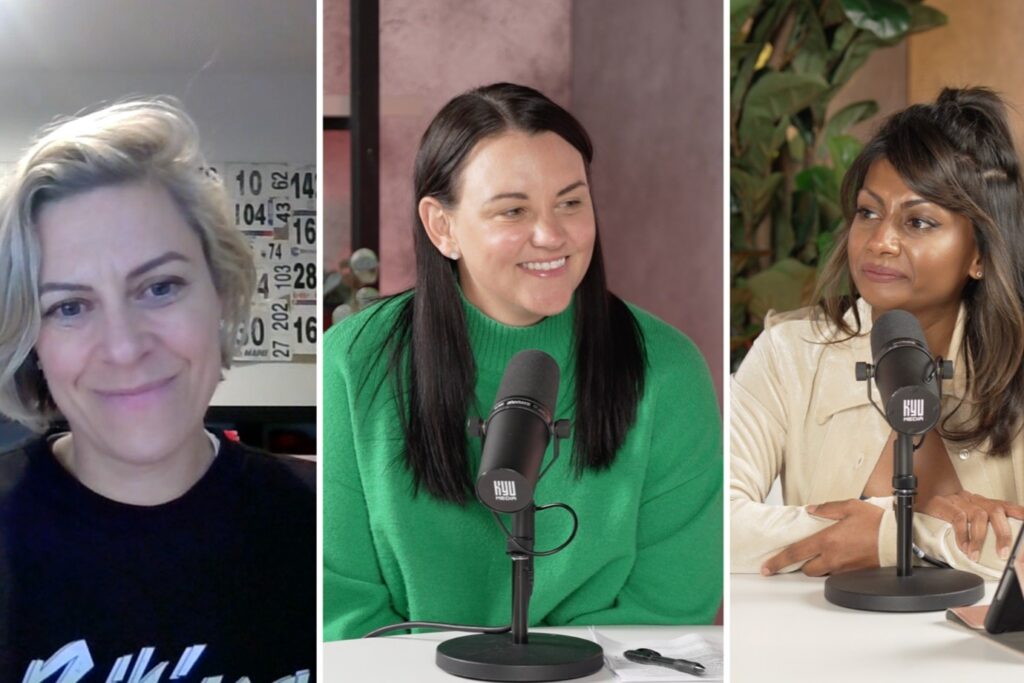Not many people can get behind a mic and make you fall in love with a sport you previously had no interest in. But all around the world, brilliant commentators are doing just that, even when the odds are stacked against them.
If you were to gather all of Australia’s sports journalists and commentators into one room, you’d struggle to find many women. That’s because women are estimated to make up only 10 per cent of sports reporters in this country.
Professional sports broadcaster Dr Bridie O’Donnell says this is partially because in Australia’s mainstream sports, the doors for commentator positions are often closed unless someone meets very informal criteria. This often means that unless you’re a high-profile player or athlete, then it’s not easy to get started.
“If the door isn’t open to you, and you can’t fulfill the eligibility criteria, then there’s no possible way,” says Dr O’Donnell. “You need a champion, an advocate, you need policies that require it, or you need someone in the commentary booth to think ‘I’m going to retire soon, and I want to cultivate young talent that’s of other genders and other levels of experience’.”
Along with commentating, Dr O’Donnell is a medical doctor, a former professional cyclist and author of Life and Death: A Cycling Memoir. She speaks to Dinushi Dias on today’s episode of The New Rules, a Women’s Agenda podcast taking you behind the scenes of the rise of women’s sport.
“I also think that, historically, we’ve seen deep-seated sexism about the way that women’s voices sound,” Dr O’Donnell says.
“People literally will give feedback saying, ‘I don’t like hearing the sound of a woman’s voice – it’s too high-pitched talking about men’s sports’, which is outrageous,” she says.
Even when Dr O’Donnell was training as a journalist, she says she was taught to lower her voice in pitch to become “more appealing”.
“What an outdated, patriarchal nonsense,” she says.
And considering that sports broadcasting positions can often feel high pressure, O’Donnell says “we need to provide safe environments for women and non-binary folk to try and actually get in the door, see if they like, see if they’re good at it, and give them the ability to make mistakes and learn from them and improve.”
When it comes to advice for those thinking of stepping into the field of sports broadcasting, O’Donnell says you need to tell other people and make it known that you want to become a commentator.
“That’s how you get your opportunities,” she says. “You reach out to the people that are doing it and [ask], ‘How did you get started? What should I learn? Who should I contact?’”
It’s also important to expose yourself to role models and listen to the way your favourite commentators cover sports events, says Dr O’Donnell.
“People need to bring themselves to the role in a way. They need to bring their experience or their strengths.”
To hear more of the conversation with Dr Bridie O’Donnell, check out the fourth episode of Women’s Agenda’s The New Rules podcast. You can find it below, or on Apple Podcasts and Spotify.


